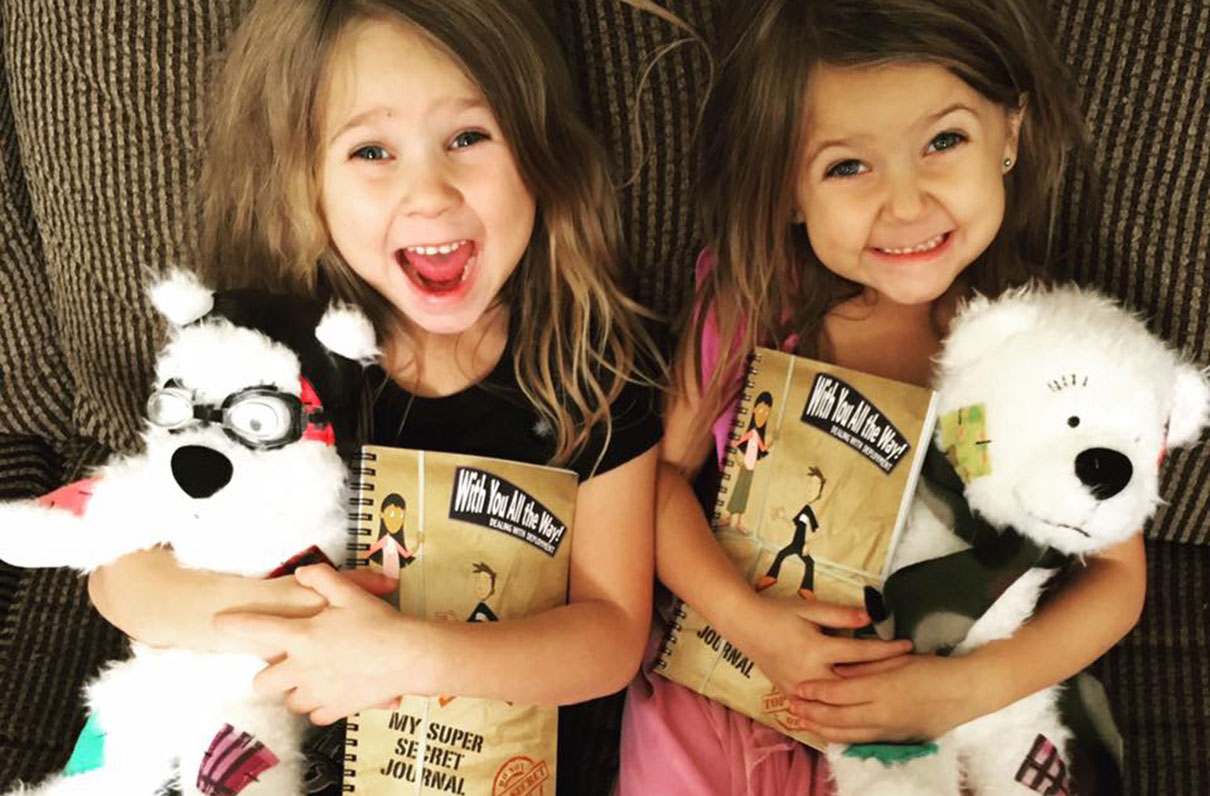This article is part of a series for Month of the Military Child about services that help kids cope with the military lifestyle. It appeared in the April 2018 issue of Military Officer magazine.
As deployments ramped up after 9/11, military children faced a host of new stressors, and there weren't many tools available to help them cope.
Some kids saw their mom or dad change after deployments: They didn't smile as much, or they were quieter than they used to be. Other children have paid the ultimate sacrifice - a parent dying.
"They were already facing multiple deployments and really struggling with that whole process, but there were so few programs targeting kids and giving them strategies to help them handle those challenges," said Ronda Englander, a Gold-Star daughter and co-founder of Comfort Crew for Military Kids.
Englander was just 3 years old when her dad, an Army chief warrant officer, was killed in Vietnam. “My mom and I picked up and were in survival mode,” she said. “We didn't know what to do next.”
As a Gold-Star child growing up during the Vietnam War, Englander said there weren't many resources available to her then, and she was surprised to learn it is still the case for today's generation of military kids. She always knew she wanted to help other kids in her situation, so she teamed with Trevor Romain to found Comfort Crew for Military Kids.
“They were already facing multiple deployments and really struggling with that whole process, but there were so very few programs targeting kids and giving them strategies to help them handle those challenges,” Englander said.
Over the past decade, Comfort Crew has sent 500,000 kits to military children coping with loss, deployments, injuries, and parents transitioning out of the military. Kits contain journals, DVDs, stuffed animals, and resources for parents.
“All of our resources have real strategies to help kids express their feelings and increase communications in families - the first step in kids feeling connected and supported,” Englander said.
She and Romain toured military bases around the world to learn about families' needs. The first Comfort Kit they created was a memory box for children who'd lost their military parent. They expanded from there to address other needs, with the hope of building family resilience through tools that help kids navigate some difficult themes.
There are many advantages to growing up in a military family, Englander said. The culture of service, perspective gained from living in different parts of the world, and being a part of a professional organization that values education all instill strength, she said.
“However, the fact remains that so much is asked of our military families, and I feel it's our duty to support them,” Englander added. “I believe that everyone has the capacity for resilience, given the right support. Our hope is that we can contribute to that process.”
Comfort Crew encourages children who receive the deployment kit to keep track of stuff that happens in their lives in their journal so they can send it back and forth to their deployed parent or show it to them when they return. Englander said one young girl recently reached out to her to share the difference journaling made for her.
“When her dad came back, it didn't seem like it was her same dad,” Englander said. “She showed him her journal, and he started to cry. She said she knew that was when he got his feelings back - that's when she got her dad back.”
The DVDs in the Comfort Kits feature real military kids' stories, so children can see they're not alone in what they're experiencing.
“Kids really are much more willing to listen to other kids than adults,” Englander said. “It's really powerful for younger kids to hear about how [another child] struggled, too, and get ideas about how they coped.”
Deployment kits are the type most often requested, making up about 60 percent of Comfort Crew's orders. The demand is high, though, and more than 1,100 families are on wait lists to receive them. Family readiness groups often request the kits ahead of their unit or squadron's deployments.
